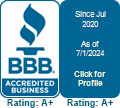
Private jet travel epitomizes luxury and convenience, but it’s essential to understand the dynamics of fuel pricing and its significant role in charter costs. JetLevel Aviation, a leader in private jet charter services, offers insights into how fuel costs influence the overall cost of chartering a private jet and strategies to mitigate these impacts.
Understanding the Dynamics of Fuel Pricing
Fuel pricing is a complex and fluctuating aspect of aviation, heavily influenced by global oil prices, geopolitical events, and supply and demand dynamics. In the world of private jet charters, fuel costs are a major expense, making up a significant portion of the operational costs. These costs vary depending on the type of aircraft, the distance of the journey, and the specific requirements of each flight. The cost of chartering a private jet is impacted by these factors, emphasizing the need for comprehensive planning and understanding of fuel economics.
In my nearly two decades in the private jet charter industry, I’ve observed firsthand the ebb and flow of fuel costs and their direct impact on charter pricing. From geopolitical shifts to technological advancements in jet engines, each factor plays a crucial role in shaping our strategies at JetLevel Aviation. Such experiences highlighted the importance of agility and informed decision-making in managing operational costs.
Fuel Costs as a Major Factor in Charter Pricing
Fuel costs directly influence the pricing of private jet charters. Given the luxury and exclusivity of private jet travel, operators must carefully balance fuel expenses with the need to provide competitive pricing and unparalleled service. JetLevel Aviation, for instance, strives for transparency in pricing, ensuring that clients are aware of how fuel costs contribute to the overall charter cost.
HOW DO FUEL PRICES AFFECT PRIVATE JET TRAVEL COSTS?
The cost of private jet travel is closely tied to fuel prices, with fluctuations directly impacting charter rates. Operators often employ strategies like fuel hedging and choosing newer, more efficient aircraft to manage these costs effectively.
Comparing Fuel Efficiency Across Jet Models
Different jet models offer varying levels of fuel efficiency, which can significantly impact the cost of a charter. Fuel-efficient jets are not only more economical but also more environmentally friendly. Clients looking to charter a jet are encouraged to consider the fuel efficiency of different models as part of their decision-making process.
Our commitment to excellence extends to meticulously evaluating each jet model’s fuel efficiency. This expertise not only aids in our selection of aircraft but also ensures that we provide our clients with the most economical and environmentally friendly options available. Our detailed analysis considers factors like engine performance, aerodynamic design, and historical fuel consumption data, enabling us to offer an optimal fleet tailored to diverse client needs.
Strategies to Mitigate Fuel Cost Impacts
To manage the impact of fuel costs, charter companies and clients can adopt several strategies. These include choosing more fuel-efficient aircraft, optimizing flight routes, and considering the timing of the charter to avoid peak fuel pricing periods. Additionally, empty leg flights, where jets are repositioned, offer a cost-effective option for travelers, providing luxury travel at a fraction of the cost.
STRATEGIES TO MITIGATE FUEL COST IMPACTS IN PRIVATE AVIATION
In private aviation, managing the impact of fuel costs involves strategic planning, including fuel purchase optimization and selecting aircraft with better fuel efficiency. These measures help control pricing and maintain competitive rates in the charter market.
Future Trends in Fuel Prices and Aviation
The aviation industry is closely watching trends in fuel prices, as these will continue to play a critical role in the cost of private jet travel. Innovations in fuel technology, including the development of sustainable aviation fuels, could lead to more environmentally sustainable and cost-effective solutions in the future.
Balancing Cost and Luxury in Private Jet Travel
In private jet travel, the balance between cost and luxury is crucial. Understanding fuel costs and their implications is key to making informed decisions about private jet charters. JetLevel Aviation offers a range of services, from on-demand charter to providing a charter flights cost calculator, ensuring that clients can enjoy luxury air travel tailored to their needs, with a clear understanding of the costs involved.


